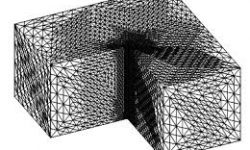January 9 – Zhaonan Dong: hp-Version Discontinuous Galerkin Methods on Polygonal and Polyhedral Meshes
Zhaonan Dong: Wednesday 9 January at 11 am, A415 Inria Paris. PDE models are often characterised by local features such as solution singularities/layers and domains with complicated boundaries. These special features make the design of accurate numerical solutions challenging, or require huge amount of computational resources. One way of achieving complexity reduction of the numerical solution for such PDE models is to design novel numerical methods which support general meshes consisting of polygonal/polyhedral elements, such that local features of the model can be resolved in efficiently by adaptive choices of such general meshes. In this talk, we will review the recently developed hp-version symmetric interior penalty discontinuous Galerkin (dG) finite element method for the numerical approximation of PDEs on general computational meshes consisting of polygonal/polyhedral (polytopic) elements. The key feature of the proposed dG method is that the stability and hp-version a-priori error bound are derived based on the specific choice of the interior penalty parameters which allows for edges/faces degeneration. Moreover, under certain practical mesh assumptions, the proposed dG method was proven to be available to incorporate very general polygonal/polyhedral elements with an arbitrary number of faces. Because of utilising general shaped elements, the dG method shows a great flexibility in designing an adaptive algorithm by refining or coarsening general polytopic elements. Especially for solving the convection-dominated problems on which boundary and interior layers may appear and need a lot of degrees of freedom to resolve. Finally, we will present several numerical examples through different classes of linear PDEs to highlight the practical performance of the proposed method.




